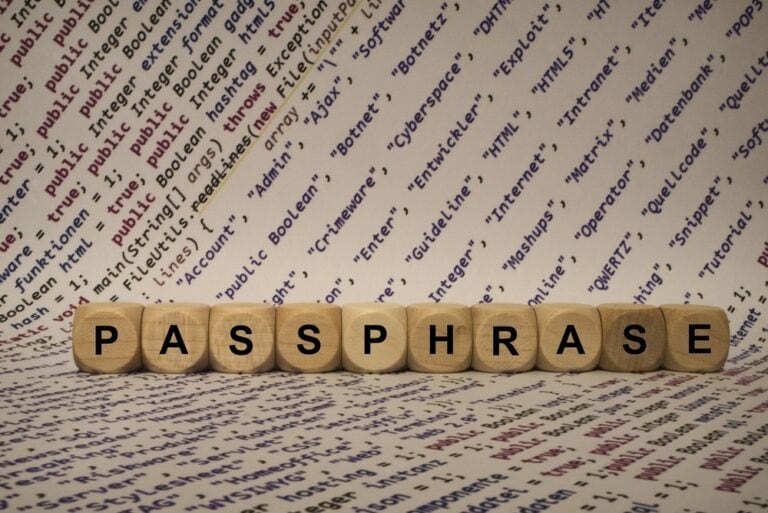The passphrase should provide a safe alternative to your password. In this blog, we explain how to get started with that.
A passphrase is a password alternative that consists of a combination of individual words. The Dutch DAP suggests this alternative as it is trying to find a solution to weak passwords such as ‘123456’. The initiative also proved necessary, according to a recent survey by NordPass, as the example we used as a password here is the most used password of 2023.
As an alternative, it now proposes a passphrase. These passwords are long in nature due to the combination of words and consequently more difficult for hackers to crack. By the way, due to the lack of capital letters and numbers, they are also not the passwords that you will hear security specialists talk about enthusiastically. However, the Dutch DAP argues that a passphrase is still useful because it is easier to remember. “Passwords you create using the diceware method generally contain fewer elements than conventional passwords. That’s also what makes them easier to remember.”
Your unique passphrase
Creating a passphrase is quite simple. There are simply word lists to make the words in your password completely random. The most famous example of this is Arnold Reinhold’s Diceware list. This list contains a total of 7,776 words. Lists in different languages also exist.
For your peace of mind, you don’t have to go through this list in its entirety. You choose the word with a dice, like it’s a party game. By rolling a die five times, you get a unique combination of five numbers that indicates which word you may take from the word list.
You don’t get a phrase with one word, of course, so repeat the step several times. Then you have a password together that contains a solid number of letters.
Better protected online
The length of the password partly determines how easy it is to get the password cracked by computer systems. Another element that speaks against hackers is randomness. For example, if you choose your date of birth as your password, this will be easier to crack by hackers who look up some information about their victims.
Still, passwords with capital letters, numbers and special characters remain better for user security. These combinations are indeed harder to remember, but a password manager can solve that. These generate a unique and complex password for each login page. The next time the user opens the application, the software fills in the stored password for the user.
Also read: These are the most hacked passwords and tactics used in cybercrime
